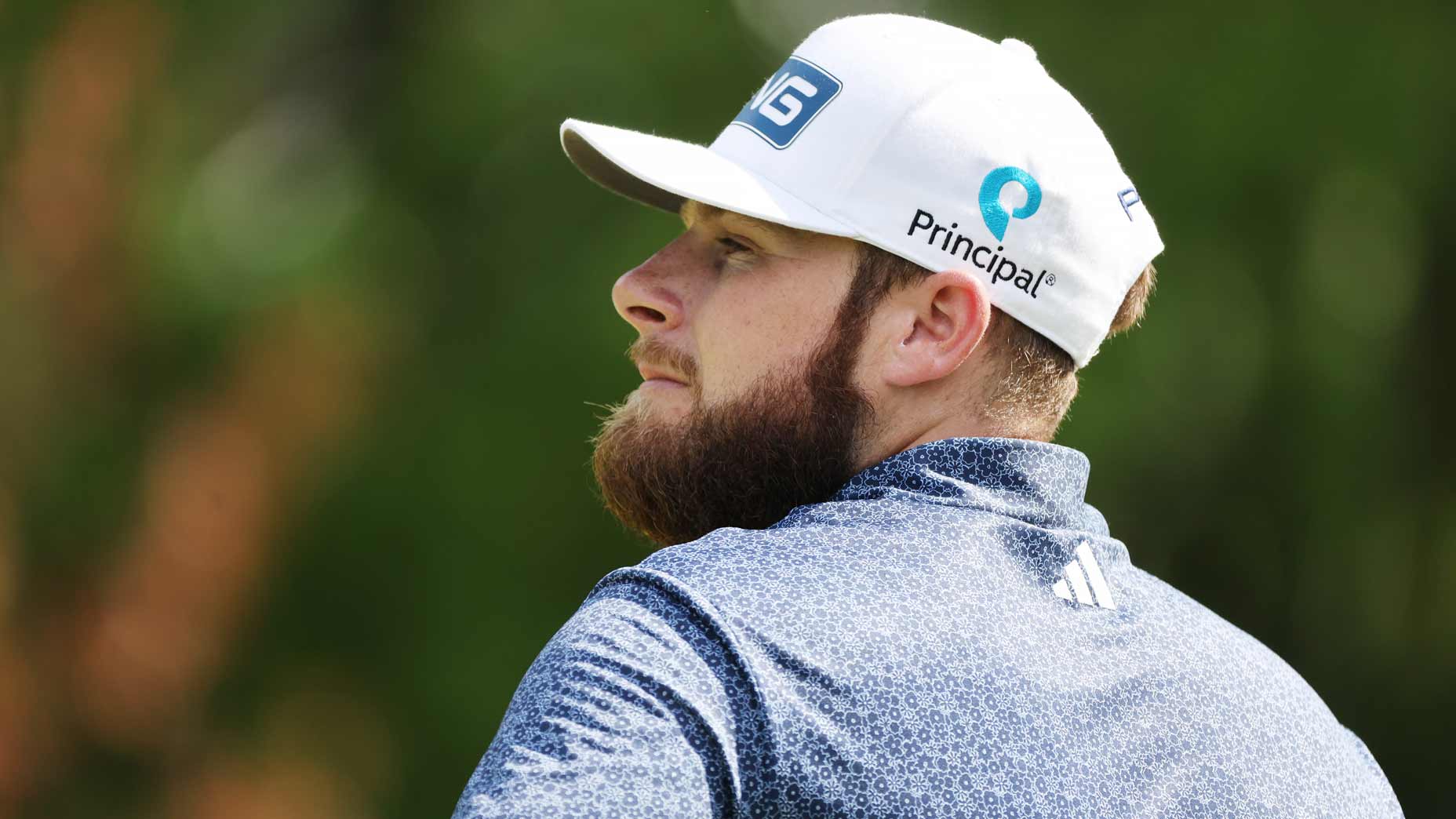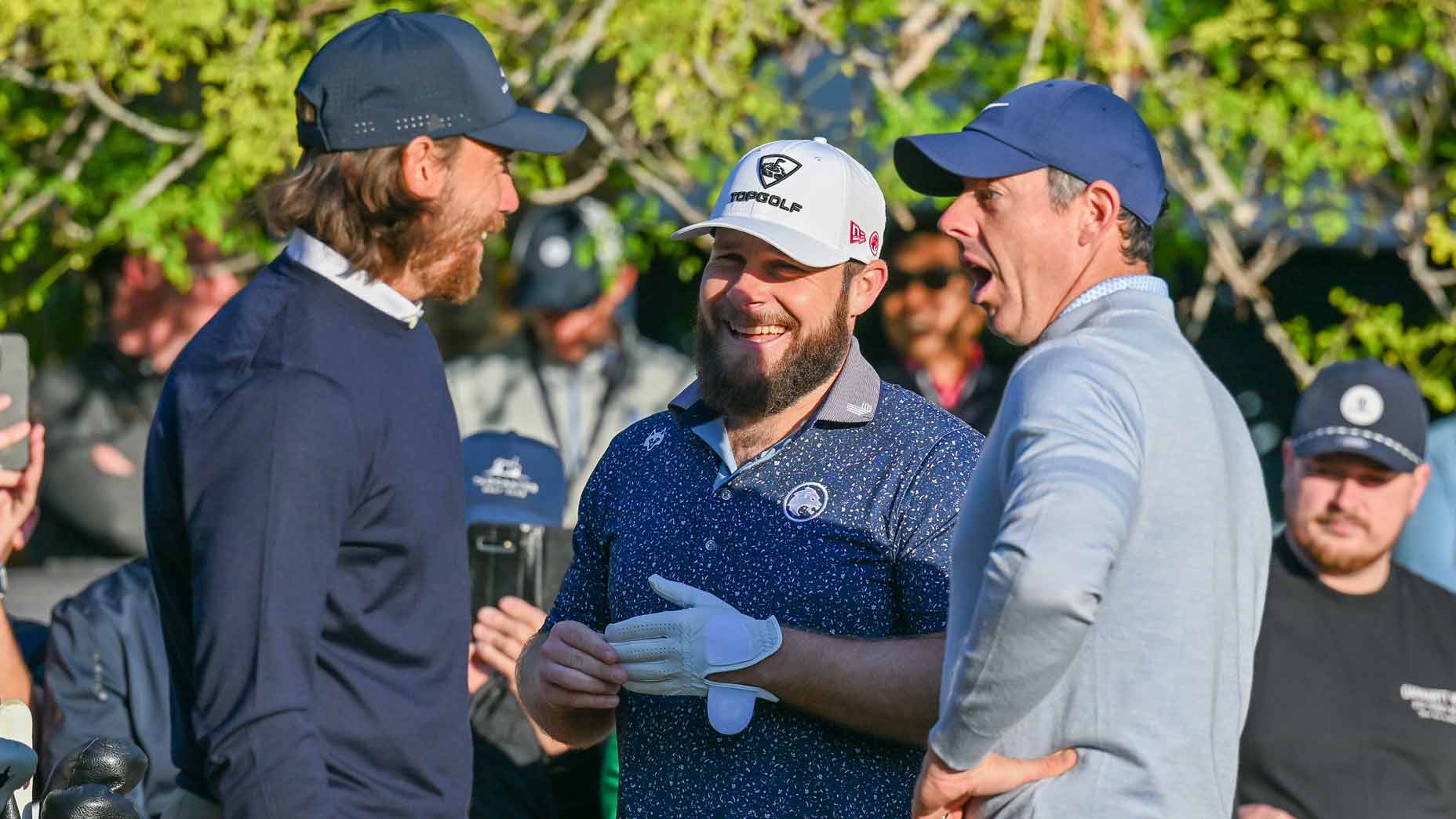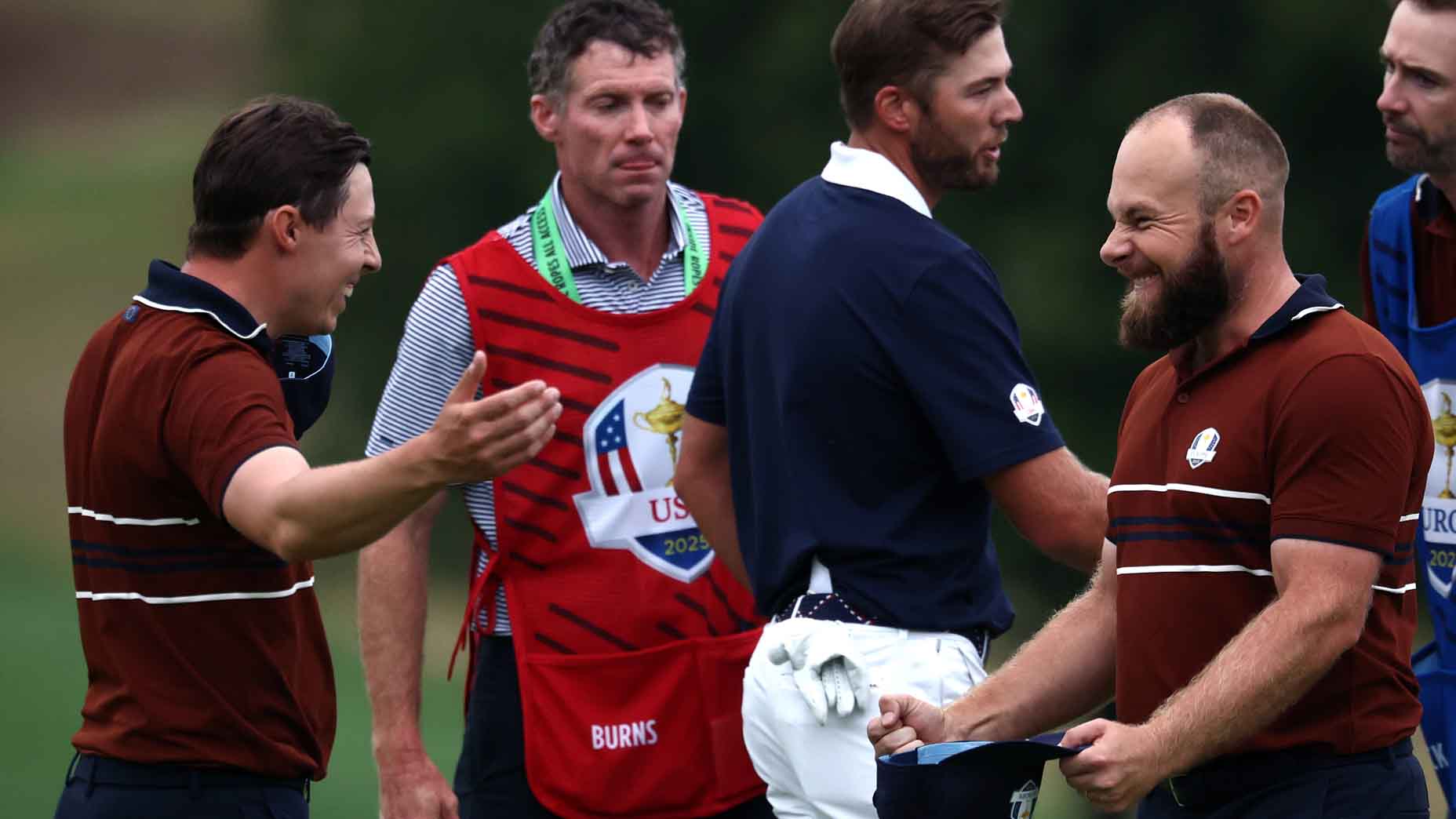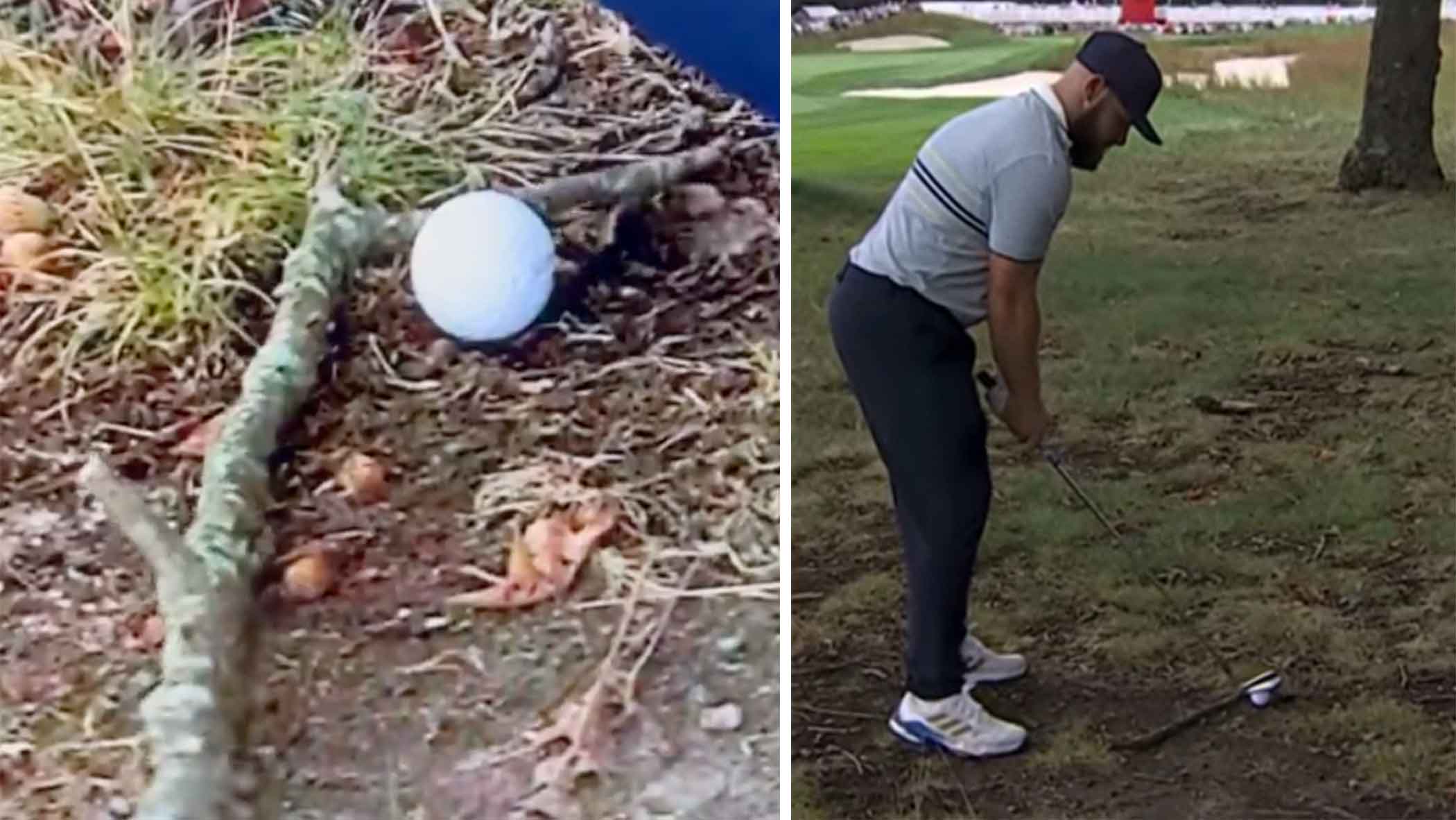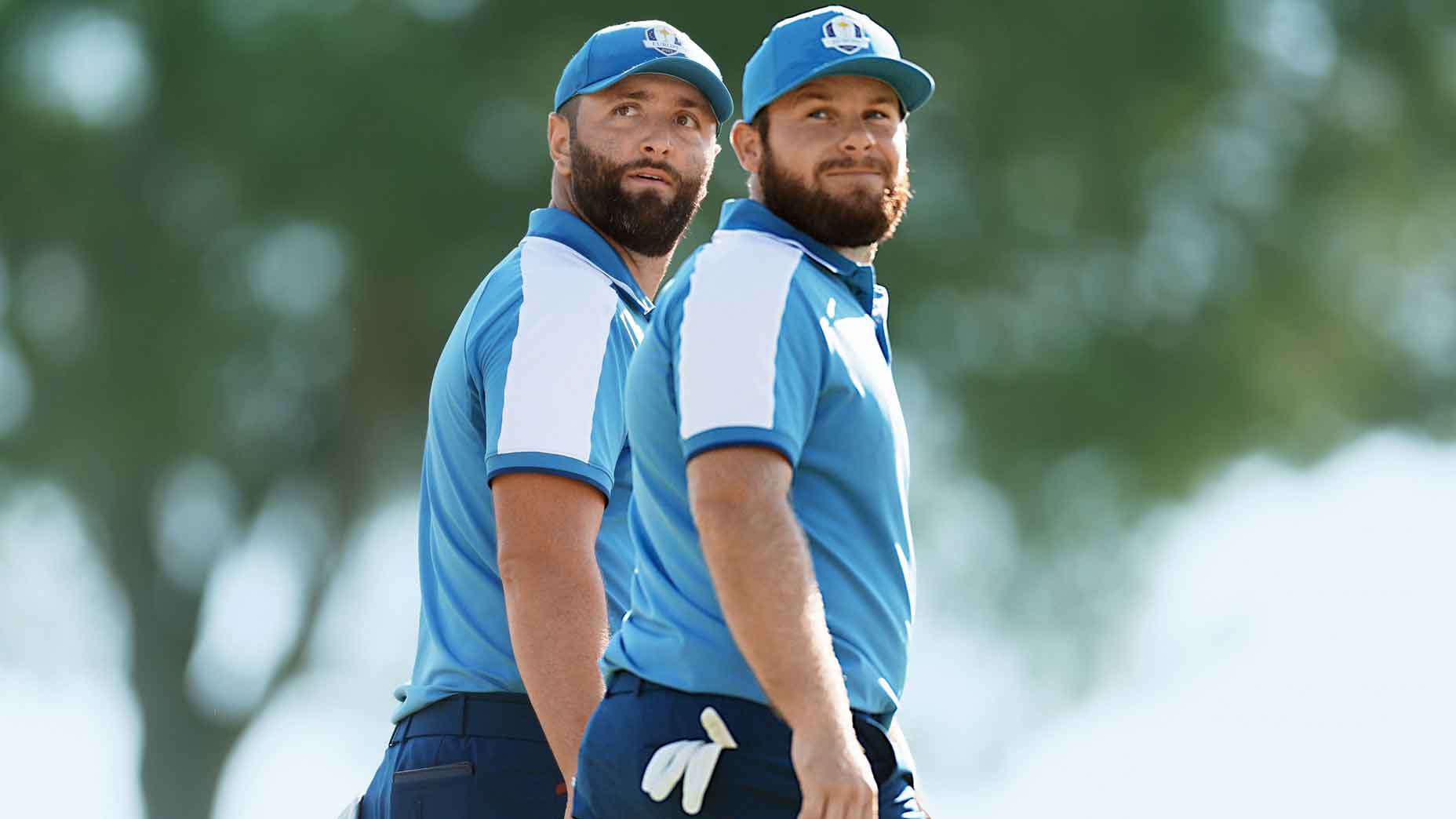If you browsed this weekend’s Wells Fargo leaderboard for examples of optimal mental approach, your first instinct might be to dismiss Tyrrell Hatton.
Look, I get why. Hatton provided some characteristic fireworks on CBS while in contention Saturday afternoon, earning the moniker “thunder and lightning” from on-course reporter Dottie Pepper. He drove the green at the par-4 14th only to three-putt for par; that earned his ball a forceful heave into the adjacent lake. He chunked one out of the bunker at No. 18 before giving that bunker a piece of his mind. This is the same guy that flipped off the 15th hole at Augusta National last month. That’s part of the Hatton experience — he never leaves you guessing what he’s thinking.
But Hatton also said something after his round on Friday that offered a helpful peek into his mindset.
First he was asked why he seems to rise to the occasion at tough golf courses like Quail Hollow. This was perhaps a nod to his success at Bay Hill, where he has won and finished runner-up. He also finished second at a challenging Players Championship earlier this year. While Hatton has a mixed record at the majors of late, there’s no question he has the game for challenging tests.
But he’s not exactly sure why.
“I have no idea,” he said. “I mean, I guess with my mental approach from the outside looking in, you’d suggest that they wouldn’t be great for me, but I always try my best and yeah, this week and a tough golf course is no different.”
The line “I always try my best” might seem like a throwaway, but it actually is an important takeaway from Hatton’s explosive on-course reactions. He can’t help but be fully emotionally invested, which means he does keep trying his best, even when it hurts. If apathy is one end of the spectrum, Hatton sits on the other. That’s worth something.
To quote Frank Nobilo: “Underneath that beard there’s a lot of talent.”
His next answer sounded like a throwaway but then I couldn’t stop thinking about it. Asked how he would make adjustments — or not — for the weekend, Hatton gave a particularly simple response.
“To be honest, I won’t really think about it until we start hitting balls 40 minutes before our tee time tomorrow,” he said. “Tomorrow’s a new day, you have new feels, try and get comfortable again and go out there and try our best.”
There’s a tendency to think of pro golfers as robots, honing their swings on the driving range and then making carbon copies of those swings once they’re in competition. In that caricature, every day feels the same and every swing does, too. But Hatton’s remarks were a reminder just how far that is from reality. He’s something of an authority on the subject, too, as one of the best ball-strikers on the PGA Tour — Hatton ranks in the top 20 in both strokes gained off the tee and strokes gained approaching the green. And even he acknowledges that his body will feel different and perform differently day to day? There’s a lesson in there.
It helps to have a baseline golf swing as good as Hatton’s, of course. But repeatability isn’t his only key to success; adjustability is huge, too. His ability to adapt based on the realities of an outdoor game — the wind, the slope, the course conditions, the pressure — is what makes him a top-20 player in the world.
Oh yeah, and it’s a reminder that you should make some time to get to the course to hit some balls before your round, too. Get comfortable. Find your feels. Adjust in real time. If Tyrrell Hatton doesn’t know how his swing is going to feel before he warms up, how on earth can you be expected to?
Just don’t go throwing your golf ball in the lake after a disappointing par. That’s five bucks right there! And unlike Hatton I’m guessing you’re not playing for a $3.6 million first prize.
